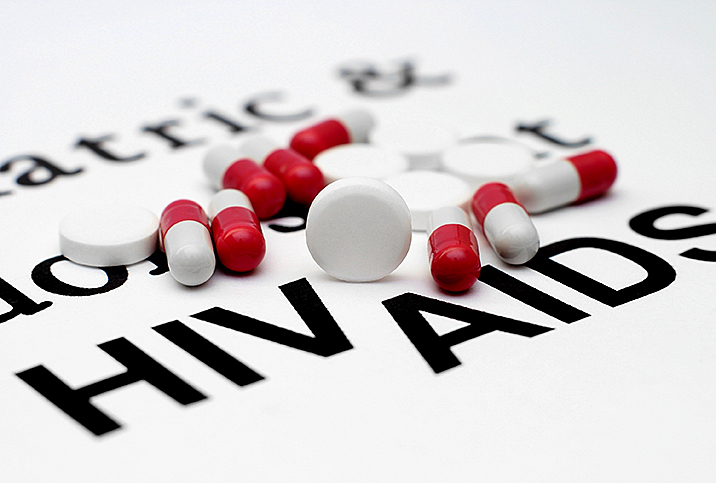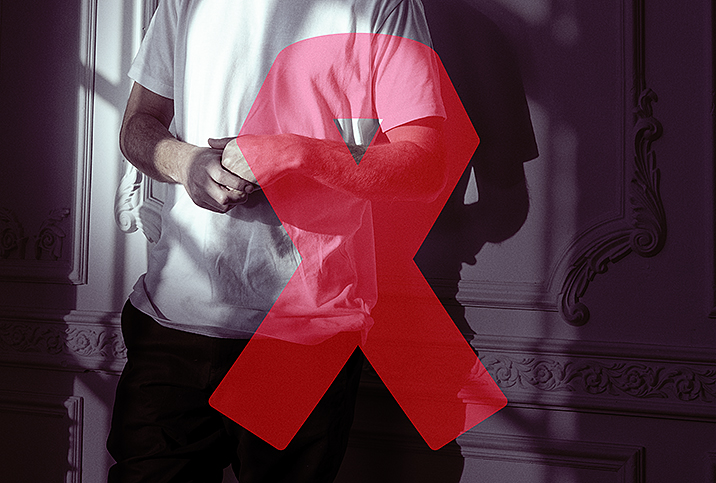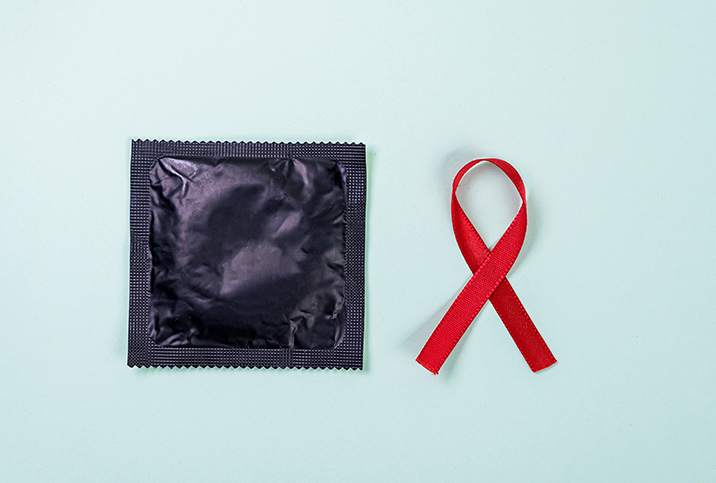What to Ask Your Doctor If You've Been Diagnosed With HIV

If you've been diagnosed with HIV, you might be overwhelmed by each new doctor's visit and lab result.
A lot of what comes with an HIV diagnosis is hard to put into words. Mental images are often colored by dated data or misinformed biases we might carry. For some, HIV is a virus that was contracted long before the diagnosis, and the sudden news can leave you speechless.
Be curious and be candid
Engaging with your doctor and their entire medical team is crucial. If you're working with qualified people, they should be well-versed about the questions they're going to be asking you and the type of information they need to best advise you.
But while they gather all those details from you, your own questions can get lost.
As you're dealing with this new situation and steadily learning that HIV is now highly manageable and difficult to transmit when following best practices, certain parts of the conversation might fly over your head.
If that happens, take some of the following things into consideration.
Ask for translation
It's amazing how much easier it is for patients to have comprehensive data about their own health in front of them than it was, say, just 10 or 15 years ago.
However, delivering all of that information to the patient requires a lot of shorthand and medical jargon that might confuse the average person. If you've recently been diagnosed with HIV, you may be hearing new terms or old terms with new gravity behind them. This can be overwhelming, so don't be shy about asking your doctor for clarification.
If you have access to an online portal through your medical provider, review it with your primary care doctor. They know it behooves both patient and practitioner for the patient to be informed about the resources available.
Point to different sections of your chart or lab results and ask questions about abbreviations or terms you're unfamiliar with. Finding a reliable source online where you can begin to get an understanding of those terms can save a lot of time, questions and stress down the road. Great if you can answer your own questions, but don't worry if you read something that you don't understand—there's your first question for your doctor.
However, don't feel you need to become proficient in medicine, and definitely don't let yourself get overburdened by the technical details. If you have a desire to be intimately familiar with your own T-cell count and other numbers, that's great, but it's likely you've got other concerns on your mind.
Asking about best practices
This is where candor and curiosity can be helpful. If you answer your doctors' questions honestly and don't hold back information, they should be able to easily counsel you on best practices regarding medication, further testing and small lifestyle changes you may want to consider.
If you have concerns regarding transmission—such as how HIV was transmitted to you or if you could have transmitted the virus to others—be as specific as you can. Revealing the type of sexual contact(s), the number of partners and the time frames in which protected and unprotected sexual encounters occurred can help your medical team advise you on disclosing your status to past or present partners.
It's important to note that there are various parts of the country where the possibility of having exposed another to HIV, especially knowingly, can constitute a crime. Where your doctor is best suited for advice on disclosing your status to past or present partners, a legal professional or counselor may be better suited for advice on how you disclose your medical status to future partners.
Asking about medications
New diagnoses of HIV tend to follow a pretty well-structured treatment plan, and doctors in the United States tend to opt for newer, non-generic combination drugs that incorporate various types of older antiretroviral medications into their makeup.
There are a lot of medications in production for treating HIV, and knowing the name and best practices for your medication is important. The most contemporary options have little to no side effects and don't require overly rigid or overcomplicated dosing protocols.
Some questions to consider might be:
- How frequently do I need to take my medication?
- Should I be concerned if I miss a dose or two?
- How specific do I need to be about the dosing schedule?
- Are there any tools I can use to help me remember to take my medication?
- Are there alternative treatments to this medication in case I can't access my current prescription for some reason?
Some other questions will have to be answered or further elaborated upon by your insurance company, but your medical team should be able to provide all the information you need to ease your mind about medication options and protocols.
If your doctor or the staff at your medical office can't answer your questions, they should be able to refer you to someone who can.
Asking for a friend
Prevention and early treatment are critical in the fight against new HIV diagnoses and HIV-related suffering worldwide. If you know someone who may be at risk of exposure but is unable to access medical services, don't be afraid to ask your doctor for advice.
This might include your own sexual partner(s) or someone in your community and social circle who has expressed worries regarding HIV or other sexually transmitted conditions. There's only so much you can do for someone else, and there's certainly a limit to how much help a doctor can provide vicariously through you, but your doctor likely has access to information regarding local services available that might be useful.
Being diagnosed with HIV can be a scary and deeply burdensome experience, but it doesn't always have to be. Quality advice and medical services can help a person adjust to the news and do what needs to be done. If you've been diagnosed, you may also have a vested interest in contributing to public knowledge about the experience and options for PrEP or other HIV-related aspects of life today.
In addition to primary care and various counseling options, your medical providers may also be able to refer you to a peer support program or other support services that can be helpful when trying to determine what your own diagnosis means for your future.
Asking for more help
There are many more matters of discussion to consider, but not all of them are best suited for your doctor: In some cases, your questions might be best directed to a caseworker or administrative representative of the medical provider.
Support groups and services such as peer mentorship can be extremely helpful when coping with an HIV diagnosis. Typically, these types of professionals are experienced personally or secondarily with HIV and newly diagnosed patients. This is a diagnosis that comes with an unfortunate stigma and misinformation attached, and having someone— specifically, and preferably, a peer—to talk with can help lessen the potential isolation of your experience.
Today, HIV is considered a manageable chronic illness and, as long as you follow the recommended practices of your medical team, you can live your life with no fear of transmitting the virus to others.
People have had good and bad experiences disclosing their status to new and potential partners, but good and bad experiences are part of any story.


















